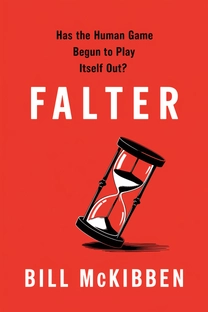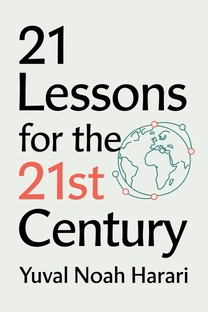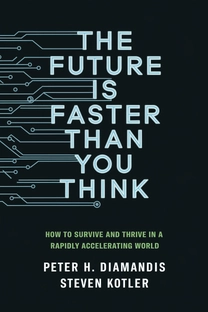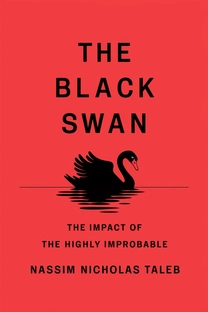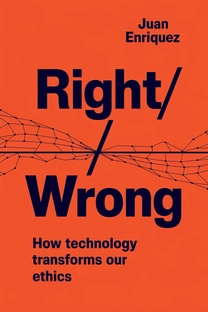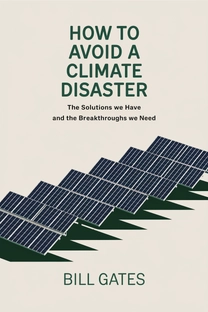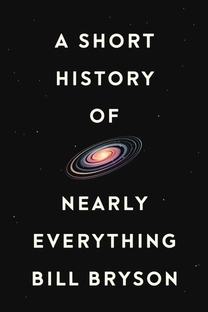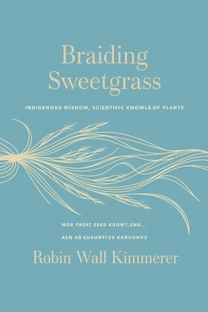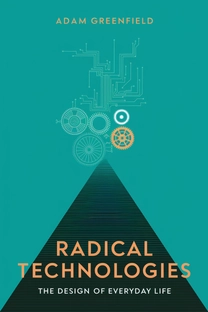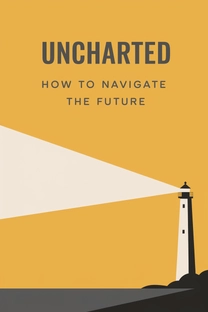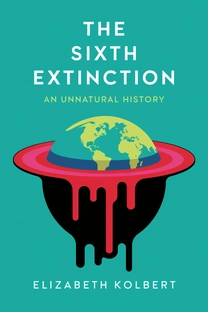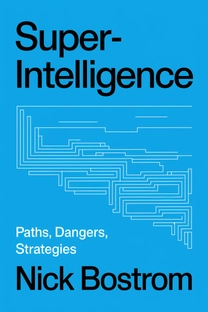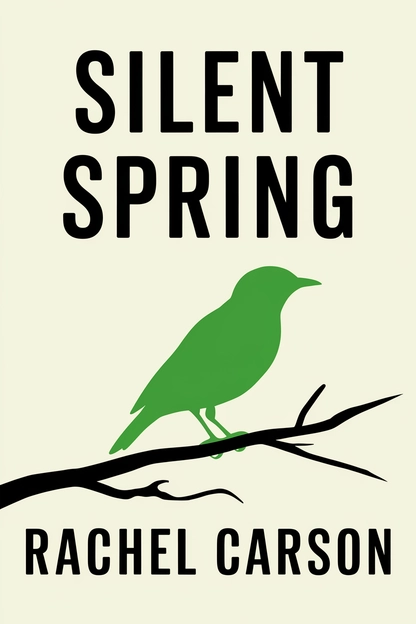
Silent Spring
by Rachel Carson
Brief overview
This book lays out the extent of harm caused by indiscriminate pesticide use on humans, animals, and whole ecosystems. It reveals how lethal chemicals accumulate in our bodies, disrupt delicate ecological balances, and often lead to more problems than they solve. By reading it, you’ll grasp the urgency of developing safer, sustainable alternatives for managing pests, protecting food supplies, and preserving nature’s inherent checks and balances.
Introduction
We open on a pivotal question: can we continue drenching our environment with toxic chemicals and remain unharmed? The inquiry immediately frames the book’s core concern—modern pesticides and their often-hidden, far-reaching consequences. With an arresting blend of real-life stories and powerful scientific evidence, the author compels us to confront these disturbing truths.
Nature, with all its built-in checks and balances, has traditionally kept insect populations in equilibrium. Our massive use of manmade chemicals, however, now imperils not just the “bad” insects but also pollinators, birds, aquatic species, and long-established food chains. From pregnant women to explorers in remote Arctic regions, no one is truly spared.
We’re presented with a cautionary opening: new synthetic pesticides, introduced after World War II, have escalated in production yet seldom deliver permanent insect control. Instead, they introduce new dangers like genetic damage, mounting cancer risks, and fragile ecosystems one step away from collapse.
The Perils of Pesticides in Water
Water is essential for life, but much of it is now contaminated by pesticides and other synthetic chemicals. Scientific studies, highlighted in the book, confirm residues of potent poisons in streams, rivers, and groundwater—directly threatening fish and entering water supplies, sometimes undetected.
The author cites experts like Dr. W.C. Hueper of the National Cancer Institute, who warns that chemically tainted drinking water may raise future cancer rates significantly. The everyday act of turning on one’s tap suddenly becomes fraught with hidden hazards.
Despite regulatory measures, enforcement is scant and technical difficulties can make detection of contaminants challenging. In short, our streams and estuaries are vulnerable, especially when blanket-spraying for nuisance insects occurs without thought for the downstream impacts on aquatic life.
What is Silent Spring about?
"Silent Spring," written by the celebrated author and renowned biologist Rachel Carson, marks a pivotal moment in environmental literature. This groundbreaking book provides a compelling exposé on the rampant use of chemical pesticides and their devastating impact on the environment. Through detailed research and eloquent prose, Carson highlights how these toxic substances infiltrate ecosystems, accumulate within organisms, and disrupt the delicate balance of nature. As relevant today as it was upon its 1962 release, "Silent Spring" persists in urging society to contemplate the ethical implications of pesticide reliance and to seek out safer, more sustainable solutions.
Carson's incisive narrative embarks on a crucial journey through the intricacies of pest control, addressing the intersections of ecology and public health. The book outlines the irreversible consequences of chemical intervention and challenges the misconception that humans can dominate nature without repercussion. By marrying scientific rigor with persuasive storytelling, "Silent Spring" champions an ecological paradigm shift, encouraging a harmonious coexistence with our planet’s natural systems and reigniting the global environmental movement.
In crafting "Silent Spring," Carson didn't just unravel the complex interactions within ecosystems or warn of impending ecological crises; she orchestrated a call to action that galvanized readers worldwide. By examining the long-term effects of pesticides and advocating for responsible environmental practices, Carson set the foundation for modern environmentalism, highlighting the need for informed citizenry to propel ecological health forward.
Review of Silent Spring
"Silent Spring" delves into the destructive cycle perpetuated by pesticide proliferation, highlighting a momentous challenge to environmental integrity. One of the book's key strengths lies in its synthesis of scientific evidence and accessible language, making it approachable to both laypersons and academia alike. By illuminating the acute consequences of indiscriminate chemical use, Carson underscores vital lessons and applications, urging readers to consider alternatives based on ecological principles.
Carson's eloquence strikes a captivating balance between dire warnings and practical solutions, encouraging communities to transition toward sustainable practices and regulations. Replete with real-life case studies and historical context, "Silent Spring" provides not just theoretical insights but concrete examples of pesticide-related devastation and the capacity for ecological recovery.
The book’s universal appeal resonates with diverse audiences, from policymakers and scientists to students and nature lovers. Carson meticulously examines the broader implications of human intervention on health and biodiversity, offering a stark reminder of our interconnectedness. Ultimately, "Silent Spring" compels readers to advocate for restorative ecological measures, reflecting on the ethical responsibilities of humankind as stewards of the planet.
Who should read Silent Spring?
- **Environmental Scientists**: Those engaged in preserving ecological systems will find Carson’s work a cornerstone for understanding the historical landscape of environmental advocacy.
- **Policy Makers**: Professionals involved in legislative processes related to environmental protection can derive insights into the origins of regulation debates and potential frameworks for sustainable development.
- **Educators and Students**: The compelling narrative of "Silent Spring" serves as an educational tool for courses in ecology, environmental science, and ethics, fostering informed future generations.
- **General Readers**: Anyone interested in understanding the intricate relationship between human activity and natural systems can gain a deeper appreciation of the environment’s frailty and strength.
- **Activists and Conservationists**: Those on the frontlines of environmental and conservation advocacy can leverage Carson’s arguments to bolster support for actionable policy change.
About the author
Book summaries like Silent Spring
Why readers love Mindleap
10-Minute Book Insights
Get the core ideas from the world's best books in just 10 minutes of reading or listening.
Curated For You
Discover your next favorite book with personalized recommendations based on your interests.
AI Book ExpertNew
Chat with our AI to help find the best book for you and your goals.
Reviews of MindLeap
Love how I can get the key ideas from books in just 15 minutes! Perfect for my busy schedule and helps me decide which books to read in full.
Alex R.
The summaries are incredibly well-written and the audio feature is perfect for my commute. Such a time-saver!
Jessica M.
Great app for personal growth. The insights are clear and actionable, and I love how they capture the essence of each book.
Chris P.
The app is beautifully designed and the summaries are top-notch. Definitely worth every penny!
Sarah K.


